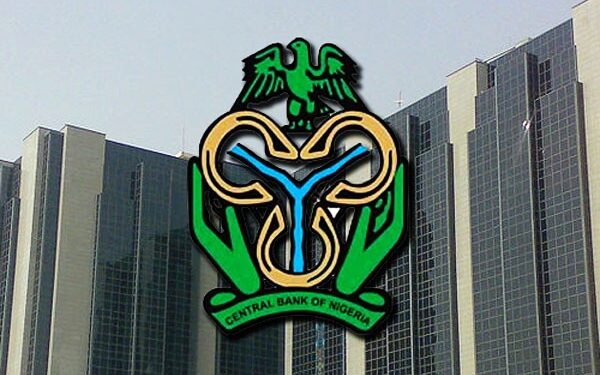By Clem Aguiyi
Email: totalpolitics@ymail.com
Tel: 08034747898
‘’Monetary policy is like juggling six balls. It is not an interest rate up. There is an interest rate down. There is the exchange rate, there are long-term yields, there are short-term yields, and there is credit growth’’. -Raghuram Rajan
When Olayemi Cardoso was first appointed the Central Bank Governor, many greeted his appointment with scepticism. The questions weren’t about his credentials and career path as a former banker and public officer. After all the immediate past governor that he succeeded was a Havard alumnus. The questions were if he could do the job and restore confidence in the monetary policy. Given his calm look; does he have the nerve to implement tough policies, checkmate the abuse of bankers’ forum, restore discipline in the ways and means, stabilize the Naira, and halt the runaway – inflation that was biting hard on the citizens and still biting?
His appointment came at a time when the Central Bank of Nigeria (CBN) faced numerous challenges, from stabilizing the Naira to checking inflation, growing the economy, and credibility issues. Cardoso, to the admiration of many, has faced the challenges head on. He has so far proved bookmakers wrong and remains arguably one of President Bola Tinubu’s best picks. Whoever controls the volume of money in a country is the absolute master of all industries and commerce. In Nigeria, that’s Cardoso. Under his watch, the CBN has implemented several policies and initiatives that have yielded positive results, thus saving the Naira and the economy from total collapse.
This opinion piece highlights 10 things the CBN is doing right to stabilize the Naira, check inflation, and grow the economy similar to those of other central banks around the world. This opinion is given with the full understanding that the ability to predict how the funds rate will evolve over time is quite limited because monetary policy will need to respond to whatever disturbances may buffet the economy
- Monetary Policy Easing: The CBN has implemented monetary policy easing measures to stimulate economic growth. By reducing interest rates and increasing liquidity in the banking system, the CBN has encouraged borrowing and spending, which has helped to boost economic activity. The Federal Reserve in the United States has also implemented monetary policy easing measures to stimulate economic growth.
- Foreign Exchange Market Intervention: The CBN has intervened in the foreign exchange market to stabilize the Naira. By providing dollars to banks and other authorized dealers, the CBN has helped to reduce the demand for dollars and stabilize the exchange rate.
- Inflation Targeting: The CBN has adopted an inflation-targeting framework to guide its monetary policy decisions. By setting an inflation target of 6-9%, the CBN has been able to keep inflation within a manageable range, which has helped to stabilize the economy. The Bank of England has adopted an inflation-targeting framework to guide its monetary policy decisions.
- Cash Reserve Requirement: The CBN has used the cash reserve requirement (CRR) to regulate the amount of cash that banks are required to hold in reserve. By increasing the CRR, the CBN has been able to reduce the amount of liquidity in the banking system, which has helped to check inflation.
- Liquidity Management: The CBN has implemented liquidity management measures to regulate the amount of liquidity in the banking system. By using instruments such as treasury bills and bonds, the CBN has been able to absorb excess liquidity and reduce the risk of inflation. This is right because each money printing exercise brings unintended consequences. These unintended consequences are hiring inflation rates and having no money been printed.
- Financial Inclusion: The CBN has implemented policies to promote financial inclusion, such as the National Financial Inclusion Strategy. By increasing access to financial services, the CBN has been able to reduce poverty and inequality, which has helped to promote economic growth. The Reserve Bank of India has implemented policies to promote financial inclusion, such as the Pradhan Mantri Jan-Dhan Yojana.
- Micro, Small, and Medium Enterprises (MSMEs) Development: The CBN has implemented policies to promote the development of MSMEs, such as the MSME Development Fund. By providing access to finance and other resources, the CBN has been able to support the growth of MSMEs, which has helped to promote economic growth and job creation.
- Agricultural Development: The CBN has implemented policies to promote agricultural development, such as the Anchor Borrowers’ Programme. By providing access to finance and other resources, the CBN has been able to support the growth of agriculture, which has helped to promote economic growth and reduce poverty.
- Infrastructure Development: The CBN has implemented policies to promote infrastructure development, such as the Infrastructure Corporation of Nigeria. By providing access to finance and other resources, the CBN has been able to support the development of infrastructure, which has helped to promote economic growth and improve living standards.
- Anti-Corruption Measures: The CBN has implemented anti-corruption measures to reduce corruption and promote transparency in the banking system. By implementing policies such as the Bank Verification Number (BVN) and the Treasury Single Account (TSA), the CBN has been able to reduce corruption and promote transparency, which has helped to promote economic growth and stability.
In conclusion, the CBN has implemented several policies and initiatives that have yielded positive results in stabilizing the Naira, checking inflation, and growing the economy. While there are still challenges to be addressed, the CBN’s efforts demonstrate its commitment to promoting economic growth and stability. As the Nigerian economy continues to evolve, the CBN must remain vigilant and adaptable, using monetary policy tools and other initiatives to promote economic growth and stability.


